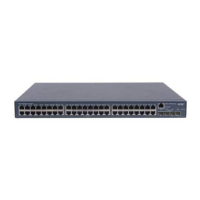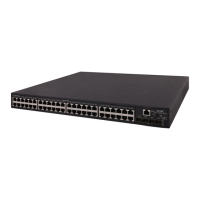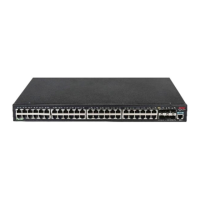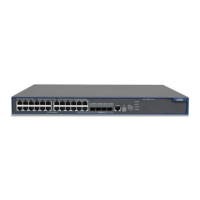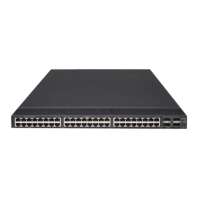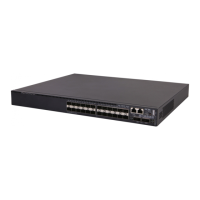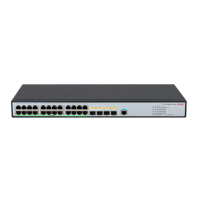1-11
Delay jitter refers to the difference between the interval of receiving two packets consecutively and the
interval of sending these two packets. The procedure of a UDP jitter test is as follows:
z The source sends packets at regular intervals to the destination port.
z The destination affixes a time stamp to each packet that it receives and then sends it back to the
source.
z Upon receiving the packet, the source calculates the delay jitter, and the network status can be
analyzed.
Configuration prerequisites
A UDP jitter test requires cooperation between the NQA server and the NQA client. Before the UDP jitter
test, make sure that the UDP listening function is configured on the NQA server. For the configuration of
the UDP listening function, see
Configuring the NQA Server.
Configuring a UDP jitter test
Follow these steps to configure a UDP jitter test:
To do… Use the command… Remarks
Enter system view
system-view
—
Enter NQA test group view
nqa entry admin-name
operation-tag
—
Configure the test type as UDP
jitter and enter test type view
type udp-jitter
Required
Configure the destination
address for a test operation
destination ip ip-address
Required
By default, no destination IP
address is configured for a test
operation.
The destination IP address
must be consistent with that of
the existing listening service on
the NQA server.
Configure the destination port
for a test operation
destination port port-number
Required
By default, no destination port
number is configured for a test
operation.
The destination port must be
consistent with that of the
existing listening service on the
NQA server.
Specify the source port number
for a request
source port port-number
Optional
By default, no source port
number is specified.
Configure the size of a probe
packet sent
data-size size
Optional
100 bytes by default.
Configure the filler string of a
probe packet sent
data-fill string
Optional
By default, the filler string of a
probe packet is the
hexadecimal number
00010203040506070809.

